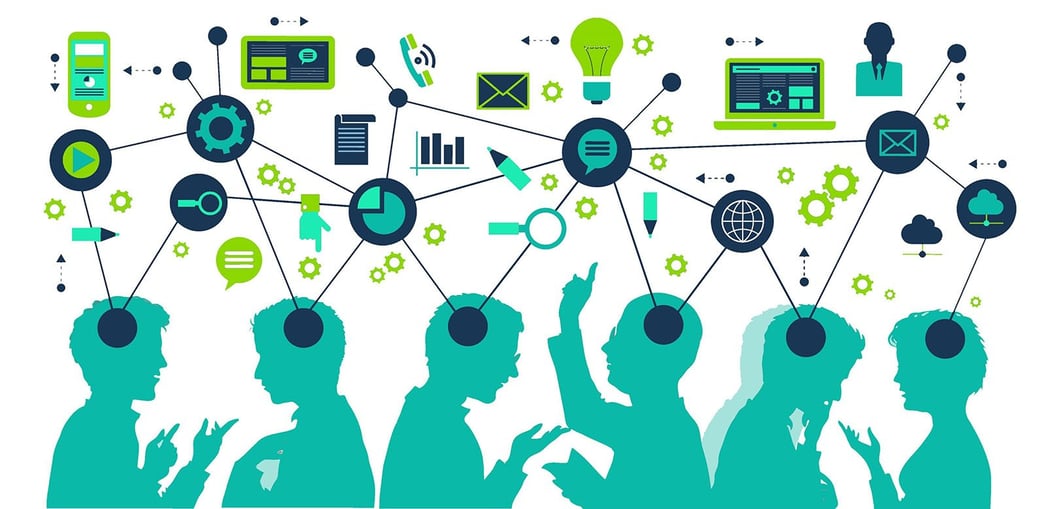REDWOOD LOGIN
Redwood PortalLTL
SCS
SCS Support
Rockfarm
As technology evolves, so does commerce. Like any other industry, transportation and logistics depend on advancements in technology to efficiently ship freight across the globe daily. While society has generally become accustomed to slow-moving freight, today’s fast-paced business demands improvements to expedite the process. To improve the customer experience, logistics leaders will focus on the future of transportation technologies to improve the supply chain, reduce costs, and deliver transparent communication throughout the logistics process.
Noted below are four realistic items that once activated, will change the transportation industry for customers and logistics suppliers.
One of the largest costs to logistics suppliers – and thus their customers; are fuel surcharges. For the past 40 years, trucking companies have worked with the US Department of Transportation and EPA to find creative ways of improving fuel economy and reducing vehicle emissions. The solution may come from today’s modern smart car. Visit any automotive dealership across the United States, and you’ll quickly discover that most consumer models are offered with hybrid powerplants. Whether it’s a traditional electric motor / petrol-powered engine, or full electric motors, the smart car division is rapidly changing from trendy to practical.
Trucking manufacturers have taken notice of improvements in electric-powered motor technology and have begun to infuse these power plants in large trucks. Freightliner, for example, has created a semi-truck hybrid engine that has achieved up to 12.5 mpg in fuel economy. While this doesn’t sound like a lot, it’s a 115% improvement from the national average. As technology improves, and more fuel-efficient powerplants become available to logistics companies, fuel surcharges should reduce, which saves the customer money.
While it was considered something seen in a Star Trek episode less than a decade ago, self-driving automobiles are coming sooner than you’d believe. Recent partnerships between automotive manufacturers and IT giants including Google, Apple, and Microsoft has stimulated a growth-phase of autonomous-driving consumer vehicles. While there have been a few human-related accidents involving fully self-driving vehicles, investigations have shown that the technology itself was not a major contributor. As self-driving technology improves and becomes proven to be a safe in the consumer automotive marketplace, it will eventually find its way into the transportation industry.

Global Positioning Systems have been helping logistics carriers efficiently route freight shipments for decades. In years past, GPS units were used to assist with route planning, provide tracking for freight, and provide general estimations for shipping cost. Boy have times changed. Modern GPS systems allow logistics companies to create better and more accurate route planning, adjust on the fly due to poor traffic or weather conditions, and provide customers with easy access to freight shipping tracking programs via online or mobile applications.
As GPS technology improves, the ability to streamline the shipping process, provide more accurate estimates, reduce delivery times, and save the customer money becomes the natural evolution.
The days of picking up the telephone and waiting for updates on your shipment are long-gone. Today’s modern logistics companies utilized proprietary software or Customer Relationship Management programs that allow them to connect with their customers quicker, more accurately, and with very little downtime. Most modern CRM systems are cloud-based, which allows remote access to customer’s logistics accounts through any internet connection.
There are currently a few technological restrictions that exist for logistics companies and customers alike – connectivity in remote areas, and the CRM software itself. As mobile technology improves, the ability to connect to the cloud anywhere and anytime to access shipping details – for the logistics company and the consumer will be improved. This enhances customer service and allows the customer to communicate with shippers and logistic planners on their time and busy schedules.
Until the day somebody invents the Star Trek beaming system, the need to move freight and supplies from one location to another will remain a constant reality. While there are other futuristic concepts such as Elon Musk’s Hyperloop, or Smart Cities seem exciting, the truth is they are decades away from becoming reality. Technology that has a practical impact on today’s transportation industry is currently in development and will focus on reducing operational costs, improving vehicle emissions, and the communication process between customers and shipping providers.
The future of transportation technologies is bright and offers benefits to both the logistics consumer and provider. Each of these technology improvements will save consumers money, expedite freight shipments, and vastly improve the communication process across multiple channels.